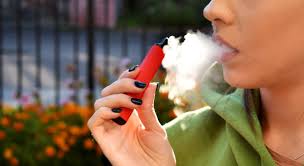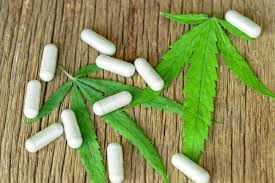Understanding CBD and Its Potential Benefits for Sleep
Cannabidiol (CBD) has garnered increasing attention for its potential therapeutic benefits, particularly for sleep disorders. Sleep issues such as insomnia, restless leg syndrome, and sleep apnea can significantly impact the quality of life. CBD, a non-psychoactive compound extracted from the cannabis plant, is being explored for its ability to improve sleep quality without the intoxicating effects associated with THC.
How CBD Works to Aid Sleep
CBD interacts with the body's endocannabinoid system (ECS), which plays a crucial role in maintaining various physiological processes including mood, appetite, and sleep. By influencing the ECS, CBD may help in reducing anxiety, alleviating pain, and promoting relaxation, all of which are essential for a good night's sleep.

Starting with the Right CBD Dosage
Determining the right CBD dosage for sleep can be challenging as it varies from person to person. Factors such as body weight, individual tolerance, and the severity of the sleep disorder all play a role. It's recommended to start with a low dose and gradually increase until the desired effects are achieved. A common starting dose ranges from 10-20 mg of CBD, but some studies suggest that higher doses may be more effective for certain individuals.
Consulting with a Healthcare Professional
Before starting any CBD regimen, it's important to consult with a healthcare professional (source: Healthline), especially if you are taking other medications. CBD can interact with certain drugs, and a healthcare provider can help guide you to the best dosage and form of CBD for your specific needs.
Different Forms of CBD for Sleep
CBD is available in a variety of forms, each with its own onset time and duration of effects. The form you choose can influence the dosage and how quickly you experience the benefits.
CBD Oils and Tinctures
CBD oils and tinctures are some of the most popular forms due to their versatility. They can be taken sublingually (under the tongue) for faster absorption or added to food and drinks. The onset time for sublingual administration is typically 15-30 minutes, with effects lasting 4-6 hours.
CBD Capsules and Edibles
CBD capsules and edibles offer a convenient way to consume CBD but have a longer onset time of 30-60 minutes as they need to be digested. The effects can last between 6-8 hours, making them a good option for maintaining longer sleep cycles.

CBD Vapes
CBD vapes provide the quickest onset time, usually within minutes, as the CBD is absorbed directly into the bloodstream through the lungs. However, the effects last for a shorter duration, typically 2-3 hours. Vaping may be a good option for those who need immediate relief but should be used cautiously due to potential respiratory risks.
CBD Dosage Guidelines Based on Sleep Conditions
Different sleep disorders may require different dosages of CBD. Below are some general guidelines for common sleep issues:
For Insomnia
Insomnia sufferers may benefit from starting with 25-50 mg of CBD before bedtime. Studies, such as the one published here (source: PMC), have shown that CBD can improve sleep in individuals with chronic insomnia by reducing anxiety and facilitating relaxation.
For Restless Leg Syndrome (RLS)
Those struggling with RLS may need a higher dose of CBD, ranging from 50-100 mg, to alleviate the muscle discomfort and twitching that disrupt sleep. Anecdotal evidence suggests that CBD's muscle-relaxing properties can be beneficial for RLS.
For Sleep Apnea
Sleep apnea is a more complex sleep disorder often requiring medical devices for treatment. However, CBD can be used as an adjunctive therapy to alleviate symptoms such as anxiety and inflammation. A dose of 25-50 mg may help provide some symptomatic relief, though higher doses may be needed over time.

Tracking Your CBD Dosage and Sleep Patterns
Using a journal or sleep tracker to record your CBD dosage, timing, and sleep quality can be immensely helpful in finding the optimal dose. Note any changes in sleep onset time, disturbances during the night, and overall sleep duration. Adjust your dose accordingly to achieve the best results.
Potential Side Effects and Considerations
While CBD is generally well-tolerated, it's important to be aware of potential side effects such as dry mouth, dizziness, and changes in appetite. High doses of CBD can also cause drowsiness, which, while beneficial for sleep, can be problematic during waking hours. Always start with a low dose to assess your tolerance.
Choosing High-Quality CBD Products
The quality of CBD products can vary greatly, so it's crucial to choose products that have been third-party tested for purity and potency. Look for products with clear labeling and avoid those with unnecessary additives. Full-spectrum CBD products, which contain other beneficial cannabinoids and terpenes, may offer enhanced effects due to the entourage effect.
Conclusion
CBD holds significant promise for improving sleep disorders, but finding the right dosage can require some experimentation. Start low, go slow, and track your progress to find what works best for you. Always consult a healthcare provider before starting CBD, especially if you are on other medications.
Frequently Asked Questions
What is the best time of day to take CBD for sleep?
It is generally recommended to take CBD 30 minutes to an hour before bedtime. This allows time for the CBD to be absorbed and start working effectively.
Can I take CBD with other sleep medications?
Always consult a healthcare provider before combining CBD with other sleep medications to avoid potential interactions.
How long does it take for CBD to work for sleep?
The onset time for CBD can vary depending on the form. Oils and tinctures typically take 15-30 minutes, while edibles and capsules can take 30-60 minutes. Vaping CBD offers the quickest onset, usually within minutes.
Is it safe to use CBD every night?
CBD is generally considered safe for nightly use, but long-term effects are still being studied. Consulting a healthcare provider for personalized advice is recommended.
Can CBD help with other forms of anxiety-related sleep disorders?
Yes, CBD has shown promise in reducing anxiety, which can help improve sleep in individuals with anxiety-related sleep disorders. More research is needed to confirm these benefits.
Where can I find reliable information about CBD and sleep?
For more detailed information, you can refer to reputable sources such as the NIH, Healthline, and Mayo Clinic. By understanding the potential benefits and correct usage of CBD, you can take actionable steps towards improving your sleep and overall quality of life.
The Ultimate Guide to CBD Dosage for Sleep Disorders
